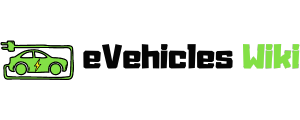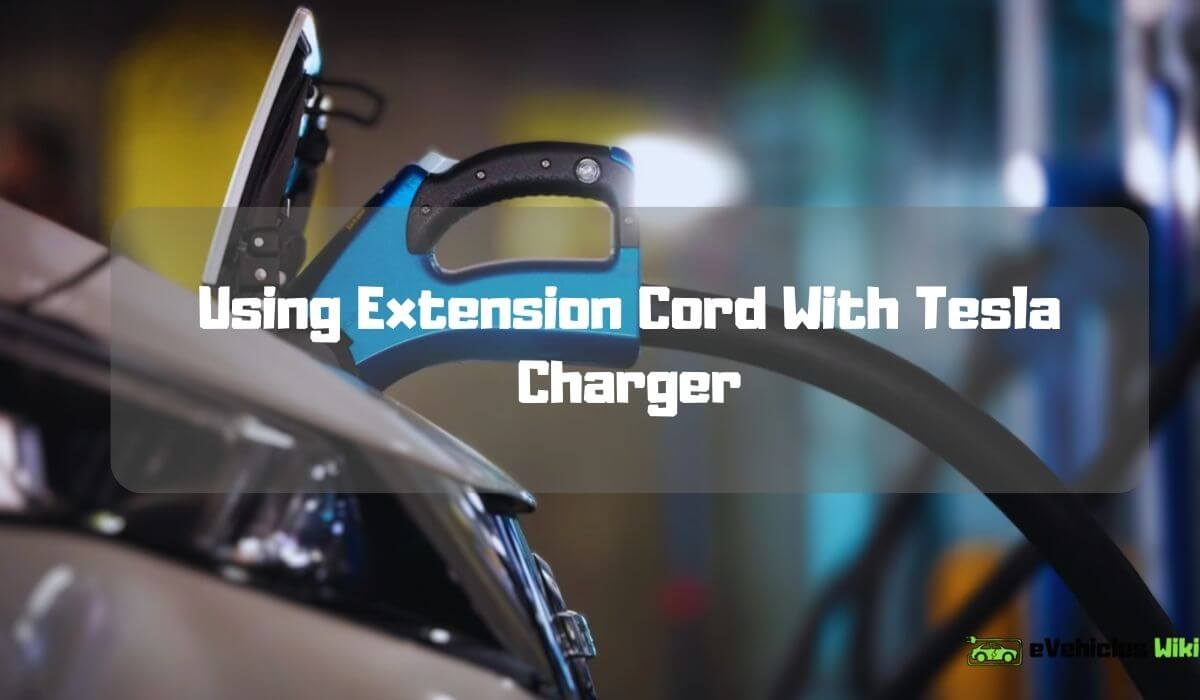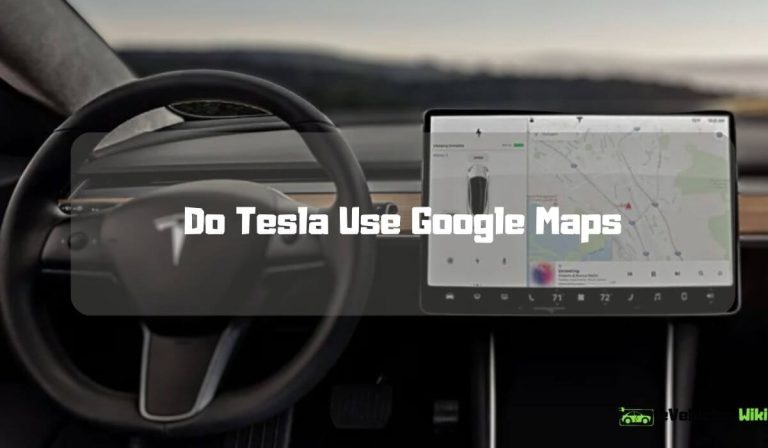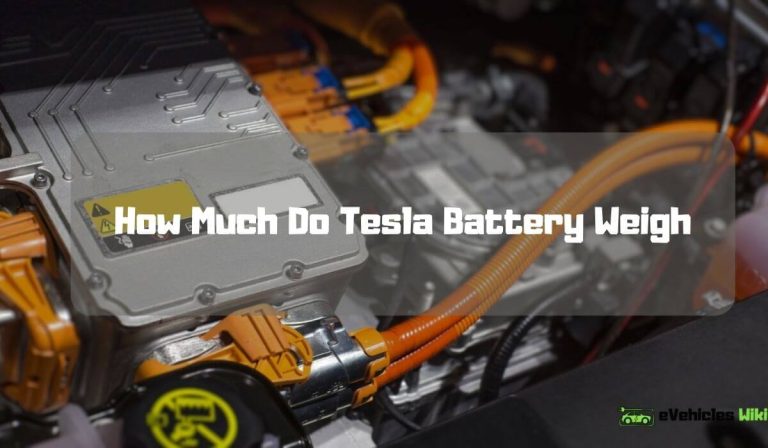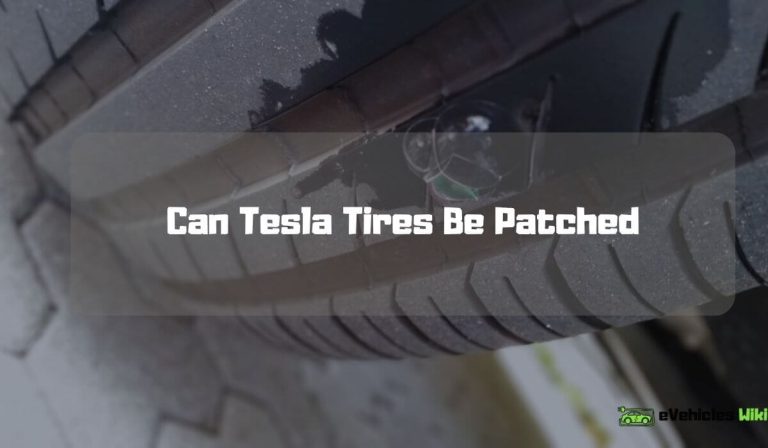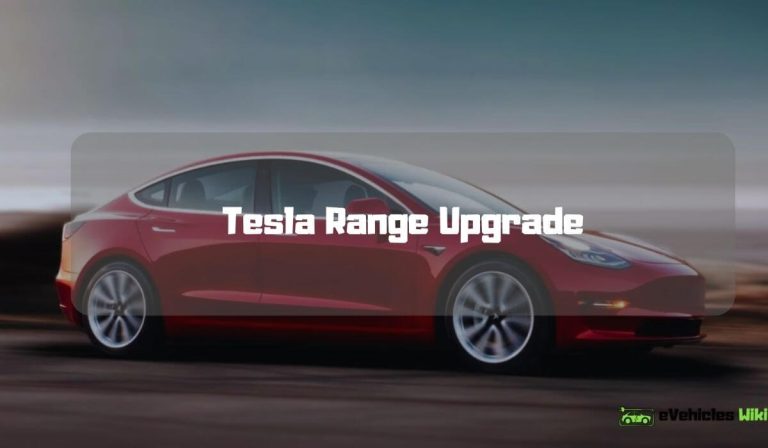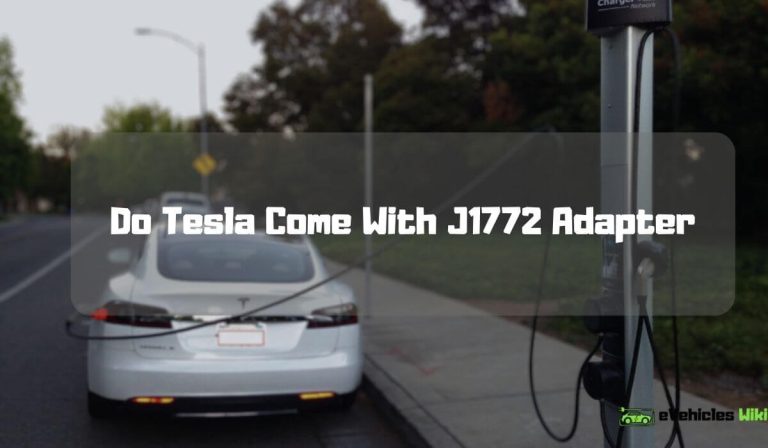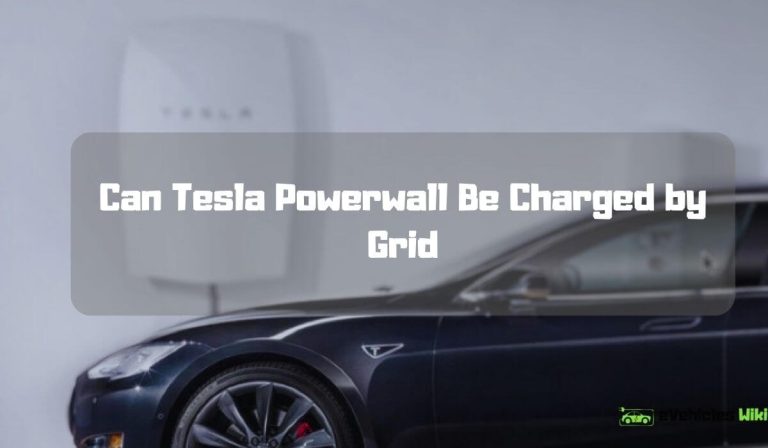Can You Use Extension Cord With Tesla Charger
No, it’s not recommended to use an extension cord with a tesla charger as it can lead to overheating and reduced charging performance. Extension cords increase the electrical resistance, which causes energy loss and can damage the charging equipment.
Using an extension cord with a tesla charger may seem like an easy fix for charging when the charging outlet is far from the car. However, it is not a good idea as it can lead to damage to the charger and even risk of fire.
Tesla recommends using a wall connector installed by a qualified electrician for efficient and safe charging. In this article, we will discuss why using an extension cord with a tesla charger is not a good idea and what better options are available. We will also cover the safety precautions to be taken while using a tesla charger.
Can You Use Extension Cord With Tesla Charger
Explanation Of The Article’S Objective And Its Scope
We aim to answer the frequently asked question if one can use an extension cord with a tesla charger. This article discusses the importance of using an extension cord with your tesla charger, focusing on the safety precautions that come with it.
The Importance Of Using An Extension Cord With Tesla Charger
Using an extension cord with a tesla charger has its advantages and disadvantages. Here are the key points to keep in mind:
- Using an extension cord is convenient when charging your tesla vehicle, especially when the cord is not long enough to reach the vehicle.
- However, it is important to choose the right extension cord for your tesla charger and not to overlook its power rating. Choosing a cord with an incorrect power rating can result in overheating, reduced efficiency, and, in some cases, electrical fires.
- It is advisable to use a heavy-duty, outdoor-rated extension cord for charging your tesla vehicle, with a gauge suitable for the length of the cord.
- The type of extension cord to be used largely depends on the amperage of the tesla vehicle charger. Using a lower rated extension cord can result in energy loss during charging.
- The recommended tesla mobile charging cord is sufficient in most cases, thereby negating the need for an extension cord.
I hope this article has provided you with a better understanding of the importance of using an extension cord with a tesla charger. Remember to remain cautious when using an extension cord and choose the correct power rating.
Understanding Electric Vehicle Charging
Overview Of The Charging Process For Electric Vehicles
As more and more people switch to electric vehicles, understanding how to charge them is increasingly important. Here’s a quick rundown of how charging works:
- Electric vehicles are charged by plugging them into a charging station or wall outlet.
- Charging can be done at home, work, or at a public charging station.
- There are different types of chargers available, which we’ll cover in the next section.
- Charging times can vary depending on the charger and the vehicle’s battery capacity.
Types Of Chargers Available For Electric Cars
Electric vehicle chargers can be categorized based on their charging speed and charger type. Here are the different types of chargers:
- Level 1 chargers: These are the most basic and slowest chargers, providing a charge of 2-5 miles per hour. They are often used for emergency charging or charging at home overnight.
- Level 2 chargers: These chargers are faster and can add up to 25 miles of range per hour of charging. They are ideal for residential charging and can be installed at homes, apartment buildings, and workplaces.
- Level 3 chargers: Also known as dc fast chargers, these are the fastest chargers for electric vehicles and can provide up to 90 miles of range in just 30 minutes. These chargers are typically found at public charging stations.
Comparison Of The Different Types Of Chargers And Which Is Best For You
Each type of charger has its own advantages and disadvantages. Here’s a quick comparison of the three types:
- Level 1 chargers are the slowest but are convenient for overnight charging at home.
- Level 2 chargers are faster and more versatile, and can charge most electric vehicles in a few hours. They are suitable for home and public charging.
- Level 3 chargers are the fastest but are expensive and not compatible with all electric vehicles. They are most suitable for public charging in high-traffic areas and for long road trips.
When choosing the best charger, consider your daily driving habits and the type of electric vehicle you own.
How Long It Takes To Charge An Electric Car And Factors That Affect Charging Speed
The charging time for an electric vehicle depends on various factors, including:
- The battery’s capacity
- The type of charger being used
- The vehicle’s onboard charger
- The temperature and weather conditions
Here are some estimated charging times for different types of electric vehicles:
- A level 1 charger can add around 5 miles of range per hour of charging.
- A level 2 charger can add around 15-25 miles of range per hour of charging.
- A level 3 charger can add around 90 miles of range in just 30 minutes of charging.
Remember that charging times can vary greatly depending on the above factors, so always check your vehicle’s manual for specific charging times.
Understanding electric vehicle charging is essential for ev owners. By knowing the different types of chargers available, their advantages and disadvantages, and the factors affecting charging speed, you can make informed choices about your electric vehicle charging needs.
Extension Cords And Their Connections
Can You Use Extension Cord With Tesla Charger
If you’re an electric car owner, you know the importance of a reliable and long-lasting charging system. And while tesla has made the process as hassle-free as possible, sometimes charging your car with an extension cord can be tempting. In theory, it seems like a simple solution, but in practice, there are several factors you need to consider before doing so.
We’ll explore the world of extension cords and their connections for tesla chargers.
Types Of Extension Cords And Their Specifications
Extension cords come in various shapes and sizes, and it’s essential to select the correct type of extension cord to avoid any mishaps. Here are a few types of extension cords and their specifications:
- 14-gauge cords: These cords are suitable for light-duty applications and are not advisable for charging your electric car.
- 12-gauge cords: These cords can handle up to 20 amps and are safe for charging your electric car.
- 10-gauge cords: These cords can handle up to 30 amps and are perfect for charging your electric car.
- 8-gauge cords: These cords can handle up to 40 amps and are suitable for high-powered charging stations.
The Potential Risks Of Using An Extension Cord For Charging And Best Practices
Using an extension cord for charging your electric car can be dangerous. Here are some potential risks:
- Overheating: Overheating can cause the extension cord to melt or catch fire.
- Voltage drop: Voltage drop can cause the extension cord to lose power, which results in slow charging and can damage your electric car’s battery.
- Tripping hazard: Long extension cords can cause a hazardous environment both indoors and outdoors.
Here are some best practices to follow to minimize the potential risks:
- Always use a cord with the right dimensions, rating, and type for your charging needs.
- Do not plug in more than one device into the extension cord simultaneously.
- Monitor the extension cord regularly to check for any damages or signs of wear and tear.
- Always plug the extension cord directly into an outlet and avoid using adapters or splitters.
- Remove the extension cord from the outlet by pulling the plug and not the cable.
Wiring And Connection Types For Tesla Chargers And Extension Cords
It’s essential to understand the wiring and connection types for your tesla charger and extension cords. Tesla chargers come in different models – some require a hardwired installation, while others have a plug for simple connectivity. Similarly, extension cords come with different plug configurations that can be used with different types of charging stations.
Professional installation is also required for hardwired tesla chargers.
What Extension Cord Types Are Compatible With Tesla Chargers And Which Ones Aren’T?
Tesla recommends using a tesla-brand charging cable to charge your electric car. Here are some compatible extension cords that can be used with tesla-brand charging cables:
- J1772 extension cords: These cords have a 240v level 2 charging and are compatible with all tesla cars.
- Nema 14-50 extension cords: These cords have a 240v level 2 charging and are compatible with the model s, model x, and model 3.
It’s essential to note that tesla does not recommend using any other brand of extension cords to charge your electric car besides their own. Incompatibility between charging cables and extension cords is a potential hazard, so it’s best to purchase a tesla-brand extension cord to charge your electric car.
While it may be tempting to use an extension cord for charging your tesla, it’s essential to consider the potential risks and follow the best practices to avoid any hazards. Choose the right extension cord, monitor it regularly, and always follow the manufacturer’s recommendations to charge your electric car safely and efficiently.
Risk Assessment And Safety Measures
Can You Use Extension Cord With Tesla Charger
As plug-in electric vehicles become more mainstream, people are beginning to wonder if they can use an extension cord to charge their electric vehicles. Tesla owners may also be wondering whether or not they can use an extension cord with their tesla chargers.
We will dive into the topic of using an extension cord with tesla chargers. Specifically, we will discuss how to assess potential risks and hazards, best practices for handling and using extension cords, how to reduce safety risks, and safety standards and regulations.
Assessing The Potential Risks And Hazards Associated With Using An Extension Cord With A Tesla Charger.
When evaluating whether or not to use an extension cord with a tesla charger, there are several key risks and hazards to consider. These include:
- Overloading the extension cord, which can cause it to overheat and potentially start a fire.
- Contact with water, which can pose an electrical shock hazard.
- Damage to the cord, which can lead to electrical shorts or other unsafe conditions.
- Inadequate wire gauge, which can cause voltage drop and slow down charging times.
Best Practices For Handling And Using Extension Cords For Ev Charging.
If you decide to use an extension cord with your tesla charger, there are several best practices you should follow to ensure safe and effective charging:
- Use a heavy-duty extension cord that is rated for outdoor use and has a wire gauge that matches or exceeds that of your tesla charger.
- Avoid coiling the extension cord, as this can cause it to overheat and potentially start a fire.
- Keep the extension cord away from water or any other sources of moisture, and never use a wet or damaged extension cord.
- Plug the extension cord directly into a grounded outlet, and avoid using adapters or power strips.
- Monitor the extension cord and charger during charging to ensure they are not overheating or showing any other signs of damage.
How To Reduce Safety Risks When Using Extension Cords With Tesla Chargers.
To further reduce safety risks, consider implementing the following measures:
- Position the extension cord and charger away from any potential hazards, including flammable materials, chemicals, or other dangerous substances.
- Make sure the extension cord and charger are not in areas of high traffic where they could be accidentally kicked or bumped.
- Use a cord organizer or other tool to keep the extension cord out of the way and prevent tripping hazards.
- Store the extension cord and charger in a safe, dry location when not in use.
Safety Standards And Regulations For Using Extension Cords With Electric Cars.
When using an extension cord with your tesla charger, you should also be aware of any safety standards and regulations that apply. Here are a few to keep in mind:
- The national electrical code (nec) sets standards for wiring and electrical equipment in the united states. This code specifies the wire gauge and other requirements for extension cords used with electric car chargers.
- The underwriters laboratories (ul) certification mark indicates that an extension cord has been tested and certified for safety by a third-party organization.
- Some local codes and regulations may also apply, so be sure to check with your local authorities before using an extension cord with your tesla charger.
While using an extension cord with your tesla charger is possible, there are several factors to consider when doing so. By assessing potential risks and hazards, following best practices for handling and using extension cords, reducing safety risks, and being aware of safety standards and regulations, you can safely and effectively charge your tesla with an extension cord if needed.
Alternatives To Using Extension Cords With Tesla Chargers
The Availability Of Options For Those Who Cannot Use Extension Cords With Tesla Chargers
While tesla chargers are widely known for their convenience with electric vehicles, some users may encounter issues with using extension cords. In such scenarios, it is essential to be aware of possible alternative options to safely and efficiently charge your electric vehicle.
Options Available And How To Select Them
Here is a list of alternative charging options to consider:
- Upgrade your outlet: One possible solution is to update your outlet to 240 volts, providing a faster and safer way to charge your ev.
- Wall connector installation: Tesla offers a wall connector that can be installed at your home and wired directly to your electrical panel. This option enables faster charging times, and the wall connector is compatible with all tesla models.
- Mobile connector bundle: The mobile connector bundle is an affordable option that includes various adapters for charging your ev wherever you go. The mobile connector bundle can be paired with both 120 and 240-volt outlets, making it an excellent solution for those on the go.
To select the perfect alternative option, here are some factors to consider:
- Your budget: Different charging options come with various costs attached to them. You’ll want to consider how much you are willing to invest before choosing the alternative option that suits your needs and budget.
- Your ev model: The tesla model you opt for also plays a significant role in selecting an alternative charging option. For instance, if you own a model x or model s, installing a wall connector may be the optimal choice due to their larger battery sizes.
Other Safe And Efficient Ways To Charge Your Electric Vehicle At Home
Apart from the above options, there are other safe and efficient ways to charge your electric vehicle at home. These include:
- Charging during off-peak hours: Charging your electric vehicle during off-peak hours such as at night can reduce your electricity bill.
- Reducing your ev’s charge level: Reducing your ev’s charge level can help maintain your ev’s battery’s health. It is advisable to charge until your ev reaches its recommended capacity or no more than 80% of the battery’s capacity.
- Maintaining your ev’s battery health: Consistently maintaining your ev’s battery health can significantly impact your ev’s performance and lifespan. Regular maintenance might include checking your battery’s levels, cleaning and inspecting the charging system, and charging your battery before it dies completely.
Using extension cords with tesla chargers can be a risky venture. However, several alternative options exist, such as upgrading your outlet, tesla’s wall connector installation or using a mobile connector bundle. Selecting the option that suits your needs depends on your budget and ev model.
Additionally, charging your ev during off-peak hours, maintaining battery health and reducing the charge level are efficient and safe ways to improve your ev’s performance.
Frequently Asked Questions For Can You Use Extension Cord With Tesla Charger
Can You Plug A Tesla Charger Into An Extension Cord?
Yes, you can plug a tesla charger into an extension cord, but it is not recommended. It can lead to overheating, damage, and even fire hazard.
What Happens If You Use An Extension Cord With A Tesla Charger?
Using an extension cord with a tesla charger can lead to an increased risk of overheating and potential damage to the vehicle’s charging system. It can also be a fire risk.
What Is The Proper Way To Charge A Tesla?
The proper way to charge a tesla is to use a properly installed and grounded wall charger specifically designed for the vehicle. It is also important to follow the manufacturer’s recommended guidelines for charging.
Conclusion
As we conclude, it is clear that using an extension cord with a tesla charger is possible but it comes with a plethora of safety risks. While tesla advises against using an extension cord, it is crucial to comprehend that the outcomes of using one can be catastrophic and costly.
A faulty extension cord can cause electrical fires, voltage drops, power loss, and other anomalies that can damage your car’s battery and components. Therefore, it is imperative to invest in a high-quality, heavy-duty extension cord with the right amperage, waterproof rating, and length that corresponds to your charging needs.
Always ensure that your cord is adequately inspected and tested before use to minimize the risk of accidents. Embracing safety precautions when using an extension cord with your tesla charger will guarantee a safer and more reliable charging experience.
